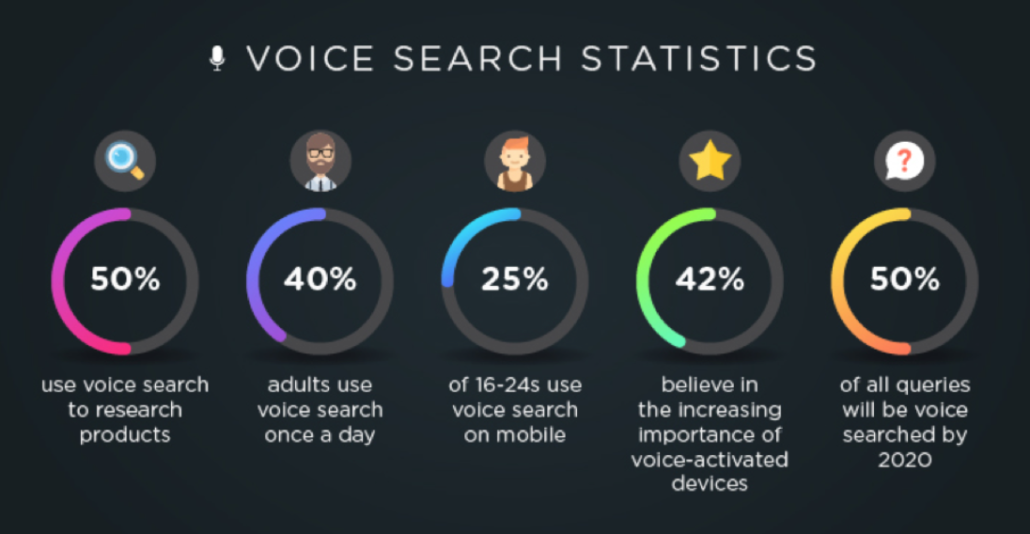Voice Search Optimization: The Future of SEO
Introduction

Voice search is transforming how people find information online, with devices like Amazon Alexa and Siri becoming everyday tools. Unlike traditional text-based searches, voice searches use conversational language and full sentences. This shift means businesses must adapt their SEO strategies to optimize for natural, spoken queries to stay competitive in the evolving digital landscape.
Impact on SEO
1. Shift to Conversational Queries
- Voice searches are more natural and conversational, like asking, “What’s the weather like today?” instead of typing “weather today.”
- SEO needs to focus on longer, natural phrases and questions people might ask.
2. Importance of Question-Based Keywords
- People use questions in voice searches, like “How do I fix a leaky faucet?”
- Content should include common questions your customers might ask, structured clearly.
3. Focus on Local SEO
- Voice searches often involve finding local businesses, like “Best coffee shop near me.”
- Ensure your local listings (e.g., Google My Business) are accurate and up-to-date.
4. Featured Snippets (Position Zero)
- Voice search results often come from featured snippets, which appear at the top of search results.
- Optimize content to answer common questions concisely, using clear headings and lists.
5. Mobile Optimization
- Most voice searches are done on mobile, so your website must be mobile-friendly and fast.
- Make sure your site is easy to navigate on a mobile device.
6. Adapting Content
- Voice search prefers short, clear answers. Focus on giving direct answers to common questions.
- Use structured data (Schema markup) to help search engines understand your content better.
Why Voice Search matters?

1. Growth in Voice Technology
- Devices like Alexa and Siri are now common, making voice search a major trend in how people find information and interact with technology.
2. Natural Language Queries
- People use full, conversational phrases in voice searches, like asking, “What’s the best Italian restaurant near me?” Businesses need to optimize for these natural queries.
3. Increased Mobile Usage
- Many voice searches are done on mobile devices. Users often search for local services and information on the go, so strong local SEO is crucial.
4. Rise of Featured Snippets
- Voice search often pulls answers from featured snippets. Appearing in these snippets can boost visibility, so content should be optimized to answer common questions clearly.
5. Changing User Behavior
- Voice search reflects how users now expect quick, accurate answers. Adapting to this trend is essential for staying relevant and competitive.
How to Optimize for Voice Search

Optimizing for voice search involves adjusting your SEO strategies to accommodate the way people use voice-activated devices. Here’s how to do it:
1. Focus on Conversational Keywords
- Use Natural Language: Incorporate phrases and questions people use in everyday conversations. For example, instead of “Italian restaurants,” use “What are the best Italian restaurants near me?”
- Long-Tail Keywords: Optimize for longer, more specific queries that people are likely to speak, such as “Where can I find a vegan bakery in my area?”
2. Enhance Local SEO
- Google My Business: Ensure your Google My Business listing is claimed, complete, and accurate. Include essential details like your business name, address, phone number, and operating hours.
- Local Listings: Keep your business information consistent across all local directories and platforms. This helps voice search devices find and display your business information accurately.
3. Create FAQ Pages
- Answer Common Questions: Develop a FAQ page that addresses common questions related to your industry. Use clear, concise answers to match the type of questions people ask in voice searches.
- Structure Content: Format your FAQ page with headers, bullet points, and direct answers to make it easier for search engines to pull information from.
4. Optimize for Featured Snippets
- Direct Answers: Provide straightforward, concise answers to common questions. Format your content to increase the chances of being selected as a featured snippet.
- Use Lists and Tables: Organize information using lists, tables, and bullet points. These formats are often used in featured snippets and are easy for voice search engines to read.
5. Improve Website Speed and Mobile Usability
- Mobile-Friendly Design: Ensure your website is responsive and easy to navigate on mobile devices. Most voice searches are done on smartphones, so a mobile-friendly site is crucial.
- Page Load Speed: Optimize your website’s load time. Fast-loading pages improve user experience and can positively impact your search rankings.
6. Leverage Structured Data (Schema Markup)
- Implement Schema Markup: Use structured data to help search engines understand the content on your site. This can improve how your content is displayed in search results, including voice search.
- Types of Schema: Implement schema for local business information, products, events, and reviews to provide more context and enhance visibility.
7. Focus on Local and Hyperlocal Content
- Local Content: Create content that caters to local audiences and includes local keywords. This is especially important for businesses with physical locations.
- Hyperlocal Targeting: For businesses with multiple locations, tailor content to specific neighborhoods or areas to capture hyperlocal searches.
8. Optimize for User Experience
- Clear Navigation: Make sure your website is easy to navigate. Voice search users often expect quick answers, so a well-organized site helps users find what they need faster.
- Voice-Friendly Design: Design your website with voice search in mind, ensuring that it’s easy to read and understand for users accessing it through voice commands.
The Future of Voice Search

1. Wider Adoption
- More Devices: As voice-activated devices become more common, voice search will play a bigger role in daily life. Expect broader use and integration with new technologies like smart home devices.
2. Better AI and Language Understanding
- Increased Accuracy: Advances in AI will make voice search more precise and capable of understanding complex questions.
- Personalized Results: Voice assistants will offer more personalized answers based on user preferences and past interactions.
3. Growth in Voice Commerce
- Shopping via Voice: More people will use voice commands to shop online. Businesses will need to adapt their e-commerce strategies to handle voice transactions.
- Product Suggestions: Voice assistants will provide tailored product recommendations based on user interests.
4. Enhanced Local Search
- Localized Queries: Voice searches for local information will become more common. Businesses should optimize their local SEO to capture this traffic.
- Detailed Local Info: Voice assistants will offer more detailed and up-to-date local business information.
5. Focus on Privacy and Security
- Data Protection: With the rise in voice search, protecting user data will become more critical. Businesses must address privacy concerns.
- Secure Transactions: Ensuring secure voice transactions will be important as voice commerce grows.
Conclusion
Voice search is becoming a key part of technology use and will continue to evolve with more adoption, better AI, and growth in voice commerce. Businesses need to adapt to these changes by optimizing for voice search to stay competitive and effectively reach their audience.

Leave a Reply
Want to join the discussion?Feel free to contribute!